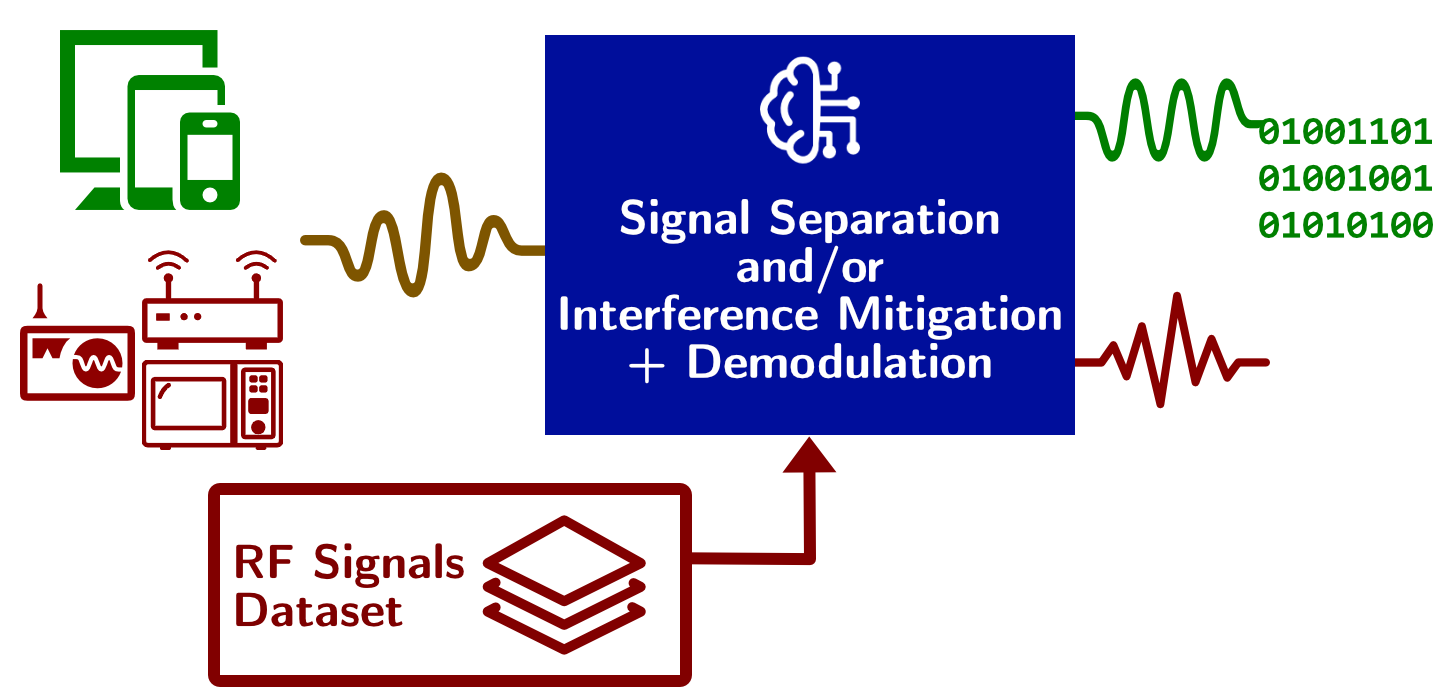Single-Channel RF Challenge
With the proliferation of wireless technologies, many different devices have emissions occupying the same part of the radio frequency (RF) spectrum. Further, wireless communication devices operating in such crowded radio environments may experience performance degradation due to interference from other devices operating in the same spectrum. Naturally, in such scenarios, given a snapshot of different signals operating simultaneously, one might be interested in separating them into their respective individual components for further analysis and characterization. A particularly challenging task is to so based on a single-sensor measurement only, i.e., in the absence of spatial diversity.
More specifically, in settings where we are presented with mixtures of waveforms from different sources, we could be interested in either a. separating the signals and obtaining estimates of the respective components, or b. extracting one of the communication signals (corresponding to our “signal-of-interest”) among the other components present and demodulating its information bits. In this part of the challenge, we encourage the development of data-driven methods through the provision of training dataset for a few different signal types, thereby motivating machine learning-based solutions that can capture signal structures which enable separation and/or demodulation on RF signal mixtures based on single-sensor measurements.
While the current iteration of the single-channel RF challenge involves a small collection of signal types, participants are encouraged to submit solutions that can naturally scale as additional signal types (and their corresponding training dataset) are introduced to the problem — i.e., algorithms or design principles that can generalize to other RF signal types beyond the current dataset provided.

Challenge Details
Click here for details on the challenge setup
Dataset
Click here for this challenge dataset
Starter Code
Click here for the starter code of this challenge
Reference Methods
Click here for the Jupyter notebook of selected reference methods
